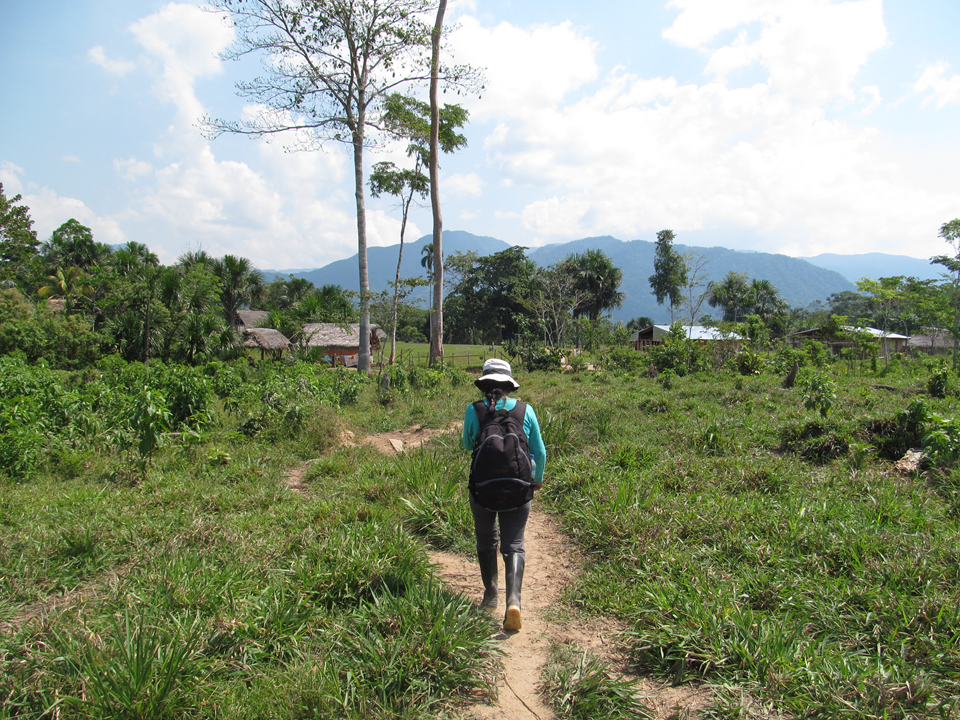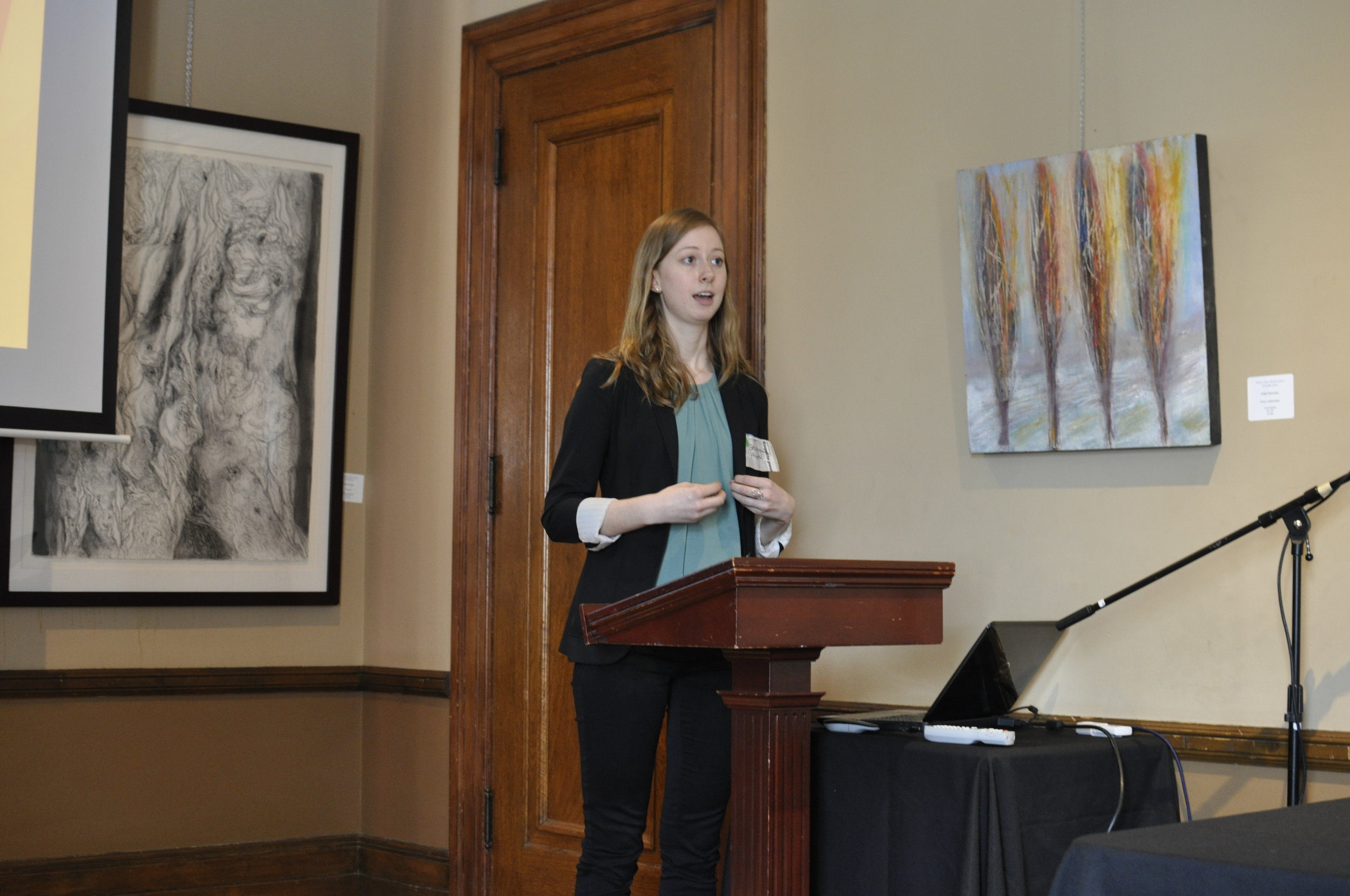Last Tuesday, Rebecca Wolff presented her work as a keynote speaker at the "Sustainability in Designing for a Global Society" event hosted by the University of Guelph's Engineers Without Boarders club. The event was a networking evening focusing on discussions of sustainability and impacts in the global community. The purpose of the evening was to connect students, professors, engineers, scientists, technologists and other professionals to help them build their networks. Rebecca had the opportunity to present her IHACC work on a climate change adaptation case study in the Peruvian Amazon, touching upon water-based health issues.


Rebecca visits National Geographic offices in DC
 While on a trip to DC, Rebecca dropped by the National Geographic Society office to meet with representatives who helped fund her current research in Peru. It was a great opportunity to discuss her project, and to learn about the support offered by National Geographic to its grantees!
While on a trip to DC, Rebecca dropped by the National Geographic Society office to meet with representatives who helped fund her current research in Peru. It was a great opportunity to discuss her project, and to learn about the support offered by National Geographic to its grantees!
Kaitlin and Stephanie presented their work at the McGill Sustainability Research Symposium on March 13th
IHACC Masters student Kaitlin Patterson, and Stephanie Austin (TRAC3 and CCARG member), presented their research at the 5th annual McGill Sustainability Research Symposium March 13, 2015. Kaitlin discussed her research on food security among indigenous Batwa communities in Uganda, while Stephanie presented her research on climate change adaptation in Canada’s health sector. Here are a few pictures from the event. Don't forget to follow them on twitter! Stephanie: @se_austin and Kaitlin: @kaitlinaislin
New article by Mya Sherman et al. in Natural Hazards
A new IHACC research article led by Mya Sherman has been published in Natural Hazards. The article, entitled "Vulnerability and adaptive capacity of community food systems in the Peruvian Amazon: A case study from Panaillo", is based on Mya's Masters' thesis work. To access the article, click here. Abstract:
Rainfall variability and related hydrological disasters are serious threats to agricultural production in developing countries. Since projections of climate change indicate an increase in the frequency and intensity of climatic hazards such as flooding and droughts, it is important to understand communities’ adaptive capacity to extreme hydrological events. This research uses a case study approach to characterize the current vulnerability and adaptive capacity of the food system to hydrological hazards in Panaillo, a flood-prone indigenous community in the Peruvian Amazon. Participatory methods were utilized to examine how biophysical and socioeconomic factors constrain or enable local adaptive capacity to climatic hazards over time. Seasonal flooding was shown to strongly influence agriculture and fishing cycles. Panaillo residents have developed several adaptive strategies to adjust to hydrological extremes, such as food-sharing and the cultivation of fast-growing crops on riverbeds. However, Panaillo residents generally lack the necessary human, physical, social, and natural resources to effectively employ their adaptive mechanisms as a result of major social and environmental changes in the area. Economic development, low institutional capacity, climate variability, and the assimilation social model in Peru all have profound effects on the food system and health by affecting the ways in which adaptive strategies and traditional livelihoods are practiced. Climate change has the potential to exacerbate these socioeconomic and biophysical drivers and further compromise community food systems in the Peruvian Amazon in the future.
Stephanie and Michelle to present at the Geography Alumni panel "Finding your coordinates" on March 12th
TRAC3 project leader Stephanie Austin and IHACC acting project manager Michelle Maillet will be talking about their journey at the McGill Geography Alumni Panel "Finding your coordinates" this coming Thursday, March 12th starting at 5pm in Burnside Hall, room 426.





